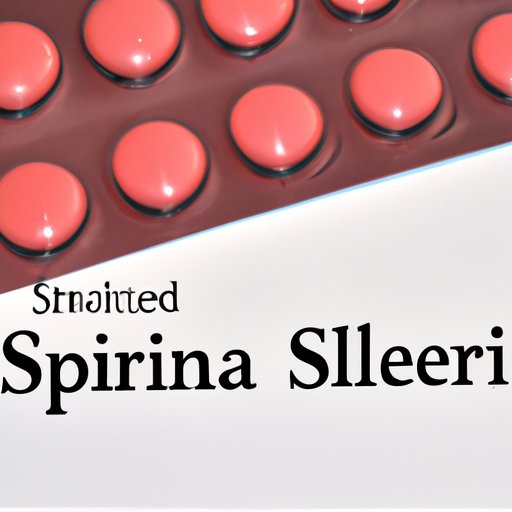
Introduction
Sertraline is a popular medication used to treat a variety of mental health conditions, including depression and anxiety. However, one common side effect that patients experience is drowsiness, which can interfere with daily activities and quality of life. In this article, we’ll explore the relationship between sertraline and sleepiness, providing a comprehensive guide to help patients manage this side effect.
The Science Behind Sertraline and Drowsiness
Sertraline is a selective serotonin reuptake inhibitor (SSRI) that works by blocking the reabsorption of serotonin in the brain, leading to an increase in available serotonin. Serotonin is a neurotransmitter that affects mood, sleep, and other bodily functions.
Research studies have shown that SSRIs can disrupt sleep architecture, including affecting sleep onset latency, REM sleep, and total sleep time. This may be related to the increase in available serotonin, which can cause drowsiness and fatigue.
A Comprehensive Guide to Sertraline and Sleepiness
Common symptoms of sertraline-induced drowsiness include excessive daytime sleepiness, difficulty concentrating, low energy levels, and fatigue. It is important to note that not all patients will experience drowsiness, and the severity of symptoms can vary.
How sertraline affects sleep patterns and energy levels can depend on the patient, their medical history, and the dosage of the medication. Generally, patients may experience drowsiness shortly after taking the medication, or it may be more pronounced in the morning or afternoon.
Factors that can influence the severity of drowsiness include the patient’s age, sex, and weight, as well as the use of other medications or substances that can cause drowsiness.
Tips and Strategies for Managing Sertraline-Induced Sleepiness
If you’re experiencing drowsiness as a side effect of sertraline, there are practical strategies you can try to minimize its impact. These include:
- Taking your medication at night before bed, rather than during the day
- Establishing a regular sleep routine and sticking to it
- Avoiding caffeine, alcohol, and other substances that can disrupt sleep
- Engaging in regular exercise to improve energy levels and combat fatigue
If lifestyle changes are not effective, alternative medications may be considered. For example, switching to a different SSRI may help reduce drowsiness, or your healthcare provider may prescribe a different type of medication altogether.
Debunking Common Myths about Sertraline and Fatigue
There are several common myths associated with sertraline and fatigue that are inaccurate or based on misconceptions. For example, some people believe that sertraline will cause weight gain or permanent drowsiness, but research has shown that this is not necessarily the case for all patients.
If you have concerns about sertraline-induced drowsiness, it is important to speak with a healthcare provider who can provide accurate information and guidance based on your individual circumstances.
Sertraline’s Impact on Sleep Quality: What You Need to Know
In addition to causing drowsiness, sertraline can also affect sleep quality for some patients. This may include vivid dreams or nightmares, or sleep disturbances such as insomnia or disrupted sleep patterns.
If you’re experiencing sleep problems as a result of sertraline use, it is important to talk to your healthcare provider about your concerns. They may be able to adjust your medication dosage or prescribe additional medications to help regulate your sleep patterns.
Practical Advice for Dealing with Sertraline-Induced Drowsiness
If you’re struggling with sertraline-induced drowsiness, there are practical strategies you can try to minimize its impact. These include:
- Taking naps during the day, if possible
- Using caffeine in moderation to improve energy levels
- Maintaining a consistent sleep schedule, even on weekends or days off
- Taking frequent breaks and engaging in light physical activity to combat fatigue
If lifestyle changes and strategies are not effective, it may be time to talk to your healthcare provider about alternative medications or dose adjustments.
Conclusion
Sertraline is an effective medication for treating a variety of mental health conditions, but it can cause drowsiness as a side effect. By understanding how sertraline affects sleep patterns and energy levels, patients can take practical steps to manage this side effect and improve their quality of life. If you’re struggling with sertraline-induced drowsiness, don’t hesitate to speak with your healthcare provider for guidance and support.




